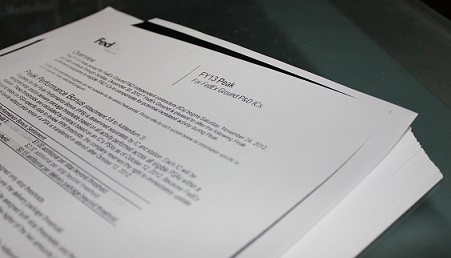First, we need to explore the two types of routes, how banks play favorites and most importantly why. It boils down to banks hate giving loans for FedEx routes but love loans for bread routes.
But why?!
Does that mean a bread route is a safer investment? If the banks won’t lend on something, it must be high risk right?
Wrong.
Judging from the success (and failures) of banks here recently, I’m not so sure I’d be inclined to believe that bankers always know best. Let’s look at the two types of routes to understand the reasons for loan approvals (read: rejections).
Bread and Snack Routes:
These are routes that deliver to grocery stores, restaurants, convenience stores, etc. These are the giant companies like Snyders-Lance, Pepperidge Farm, Flowers, and Bimbo. All of these routes can be financed, either in-house or through outside banks. You’re never having to go to a bank to get financing yourself. In the case of Pepperidge Farm, they already have a relationship with Bank of America where you can get loans from Pepperidge Farm without having to step one foot into a Bank of America office.
So, maybe you see a listing where the route is $200k with only $80k down and it’s a Snyders-Lance route. Can you get a business loan for that $80k you need down? Probably not. And by “probably not”, I mean something more akin to, “no chance in hell.”
So why would a bank be so eager to lend for a bread route for a certain amount and then not a penny beyond that? Because, at the end of the day, banks know routes are a strange type of business. It’s not a business you really and truly own (like if you owned a piece of real estate, or say a car dealership) because the main corporation truly owns your route.
SO WHY DO BANKS LEND AT ALL?
Because bread companies have figured out what they consider to be the true worth of a route. That value is usually much less than what the route can actually be sold for. Kind of like your tax assessment of your property is always (hopefully!) lower than what you could sell your home for, the same goes for routes in regards to the company’s valuation vs what you can sell it for. When a contractor gets his route pulled (defaults/gets fired/etc), the bread company goes to Bank of America and pays off the loan that was originated for that contractor. Banks are basically making (mostly) risk free loans since they’re guaranteed by these other companies. That’s why:
a) they don’t care about you applying personally, since they often don’t try to come after you generally anyway and
b) banks will lend only the amount the bread company “guarantees” them to be repaid in the event of default.
Let’s look at the other side of the coin now. Why would a bank never lend anything for a FedEx route?
FedEx Route Loans:
With a FedEx route, there’s no set valuation by FedEx for the value of a route like bread routes. That means FedEx isn’t working on your behalf to establish a relationship with a bank. FedEx considers you a contractor completely independent of them. An analogy is say you wanted to get your oil changed at a local mechanic shop and the owner came out and said, “We can’t pay rent, can we get a $50,000 loan from you?” You’d tell him to get lost and take your business elsewhere, because you don’t care about how your mechanic does business – you just want the job done.
That’s the way FedEx is going to feel about you too.
Since FedEx (and bread routes as well) owns your route, you really don’t have any real assets when you buy a route other than two things: a) Some trucks (hopefully) and b) A piece of paper…well, several pieces, that look like this:

Those papers are your contract. And in those pages they stipulate that a new contractor must be approved by FedEx before you can ever sell your route. That means that if you walked into a bank, got a loan for your FedEx route, and defaulted, when the repo guy comes in and says, “Hi. I’m from Wells Fargo and my client defaulted so I’m here to repossess a route.” FedEx terminal managers will look this suit and tie idiot up and down and chase him out the building with a shovel.
FedEx doesn’t have to contract with anyone they don’t want to.
So banks know they can’t repossess a route – doesn’t matter the amazing earnings, established business model, or even having FedEx’s glorious name behind you.
You’re not getting that loan.
Here’s how the banker hears your pleas for a loan:
You: “Can I have a $500k loan?”
Banker: “What for?”
You: “A piece of paper. Oh…and a nice truck too!”
Banker: *burns application*
So besides the obvious friends, family, and 401(k) you’ve already heard about…how DO people get small loans? The next part we’ll talk about one of the craziest ways you’ve ever (not) heard of to get a loan.

